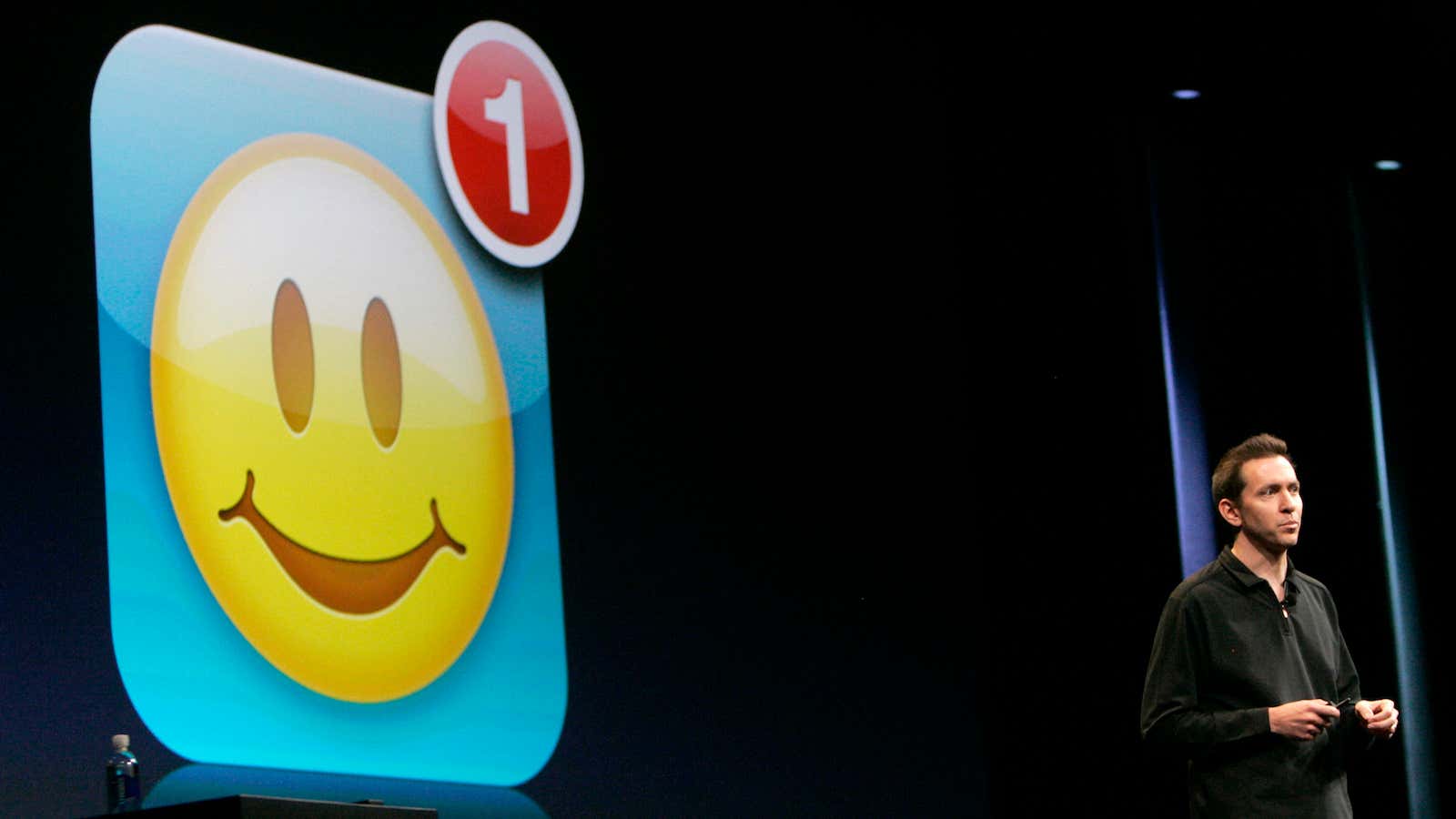The age of notification overload is upon us. The more apps we download on our phones and open on our computers, the more little red flags crop up to remind us of all the information we’re not consuming and things we should be doing. Whereas your phone used to only chime when a loved one was sending you a message, it’s now going off all day, every day: local news, incoming thunderstorms, new lover matches, amber alerts, incoming emails, social media likes, erroneous messages from newspapers. As more and more of these notifications pop up on our phones and desktops, it has allowed us to keep connected to the world 24/7—whether we like it or not.
Now that we are so used to knowing what is happening around the world at all times, we have become hooked on information overload. An influx of push notifications has added to the rise of a now widespread phenomenon: the fear of missing out (FOMO). FOMO threatens our work efficiency and well-being. Our constant consciousness about all the things we could be doing or the information we could be absorbing hinders our judgment of deciding which task should be attended to over another.
With average user-reaction rates of only 8.7%, there’s a way that push notifications can provide better value while also increasing their effectiveness.
Push
Push notifications add to this anxiety as they force us to process more information when we’re already distracted, such as when we’ve picked up our phone or when we’ve spotted the jumping icon at the top of our computer screen. In this way, they only further drag us away from our previous task and focus. Of course you can always turn off your notifications or set aside a specific time to check them during the day, but soon enough, FOMO kicks in, and we start to worry about missing an important email or message.
Given that our collective attention span is already on the wane, it’s worrisome that push notifications can interfere with our work and increase stress and anxiety even more. Our relentless need to stay updated is bad for our health—and our sanity.
Pull
In an effort to reduce stress and stay on point, many people will instead choose to pull their own notifications. This means that instead of being at the mercy of other people and companies pushing notifications at you, you can manually pull your own information, extracting the information you need when the time is appropriate. An example of this would be checking your emails on your phone or logging into Facebook to check out those red notification flags.
But while this can give us an initial feeling of control, as soon as the FOMO kicks in, we begin pulling information more often than needed—maybe even more often than the push notifications would’ve alerted us in the first place—just to check if something urgent needs our immediate attention. In this way, not having push notifications can also be damaging to our productivity. At least with push notifications, we know we’re not missing anything.
Personalization
Free time is a scarce resource these days. So we need a comprehensive solution that can deal with the influx of messages and updates we receive. If we want to reduce the time-consuming task of constantly filtering, checking and reviewing messages, we need to make notifications personal.
Instead of constantly distracting us with news (push), or prompting us to constantly check if anything important needs our attention (pull), notifications should be personalized for our needs, availability, and deadlines. As each of us have individual habits, behaviors, preferences, and ways of working, our messaging and notifications should be personalized as well.
Using AI-based mechanisms, it is now possible to provide tailored notifications that apply specifically to the individuals receiving them. Many companies are already utilizing this technology. For example, Google’s navigation app Waze sends users notifications telling them when it’s time to leave in order to arrive at their destination based on their calendars and traffic on roads ahead. Knowmail’s AI engine also personalizes messaging based on email habits, preferences, and the user’s current mind state for increased productivity. It’s even reported that Amazon’s Alexa will soon use a different kind of personalized push notification: voice notifications about things such as song titles and Uber arrivals, meaning that users will no longer need to start the conversation in order to get the information they need.
Personalized notifications have the ability to empower smarter decision-making based on information that acknowledges that we are all busy people with differing wants and needs. Through this, users will be able to seize control over their time once more.
While we can’t expect to eradicate the effects of FOMO, we can help monitor it. By implementing personalized notification systems, we can decrease our anxiety and distractions while increasing our focus and productivity. It’s all about knowing about the right things at the right time.
